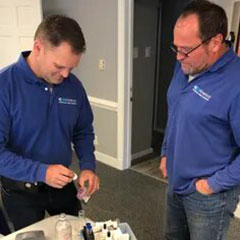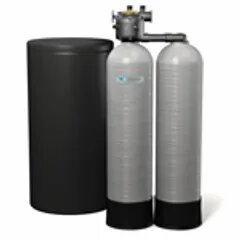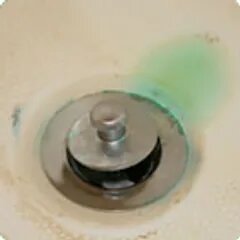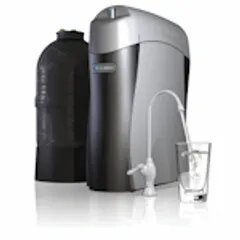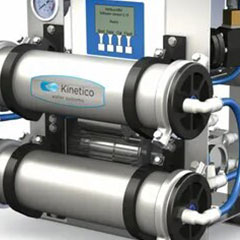Why Hard Water Could Be Damaging Your Home and Appliances
Water is water, right? Not exactly. The type of water running through your pipes can impact everything from your appliances to your skin. If you’ve ever noticed chalky residue on faucets, stiff laundry, or soap that just won’t lather, chances are you’re dealing with hard water.
What Is Hard Water?
Hard water is water that contains high levels of minerals like calcium and magnesium. While these minerals aren’t harmful to your health, they can wreak havoc on plumbing, appliances, and even your daily routine.
The minerals in hard water don’t dissolve easily, which is why they tend to leave behind buildup on surfaces they come in contact with. Over time, this can lead to serious issues that affect both your home and your wallet.
How Hard Water Damages Your Plumbing
Your pipes are the lifeline of your home’s water system. But when hard water is running through them, problems can start to build—literally.
- Mineral Buildup: Hard water leaves behind deposits inside pipes, slowly narrowing the passageway. This restricts water flow and can lead to clogs.
- Increased Wear and Tear: The constant buildup forces your plumbing to work harder, increasing the chances of leaks and damage over time.
- Water Pressure Problems: If buildup goes unchecked, it can significantly reduce water pressure, making showers and washing up frustratingly slow.
A professional can inspect your plumbing system and recommend solutions to prevent hard water from causing long-term damage.
Shortening the Lifespan of Appliances
Your water heater, dishwasher, and washing machine are all affected by the quality of water running through them. Hard water causes mineral deposits to accumulate inside these appliances, reducing their efficiency and forcing them to use more energy.
- Water Heaters: Hard water causes sediment buildup at the bottom of the tank, making it harder to heat water efficiently. This leads to higher energy bills and potential breakdowns.
- Dishwashers: Ever notice cloudy glasses and white spots on dishes? That’s hard water in action, leaving behind residue that’s tough to remove.
- Washing Machines: The minerals in hard water make detergents less effective, meaning your clothes don’t get as clean. It can also leave fabrics feeling stiff and faded.
Routine maintenance by a professional can help extend the life of your appliances and keep them running smoothly.
Hard Water and Your Daily Routine
The effects of hard water aren’t just limited to your home—it can also impact your personal care.
- Soap and Shampoo Won’t Lather: Hard water makes it difficult for soap to foam, which means you need to use more product to get the same results.
- Dry Skin and Hair: The minerals in hard water strip away moisture, leaving your skin dry and your hair feeling brittle.
- Stained Sinks and Showers: White, chalky stains on faucets, glass doors, and tiles are signs of hard water deposits that build up over time.
If you’re noticing these issues, it might be time to have a professional assess your water quality.
Professional Solutions for Hard Water
While hard water is a common problem, it’s not one you have to live with. Professionals can test your water and recommend solutions that work for your home.
Treatment options can prevent mineral buildup, improve water quality, and protect your plumbing and appliances from further damage. Investing in a professional solution can save you from costly repairs and replacements down the line.
The Bottom Line
Hard water may seem harmless, but the damage it causes adds up over time. From clogged pipes to inefficient appliances, the effects can be costly and inconvenient.
If you’re dealing with hard water, don’t wait for the problem to get worse. A professional can help you find the best solution to keep your home running smoothly for years to come.

